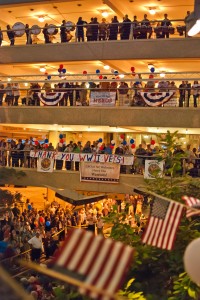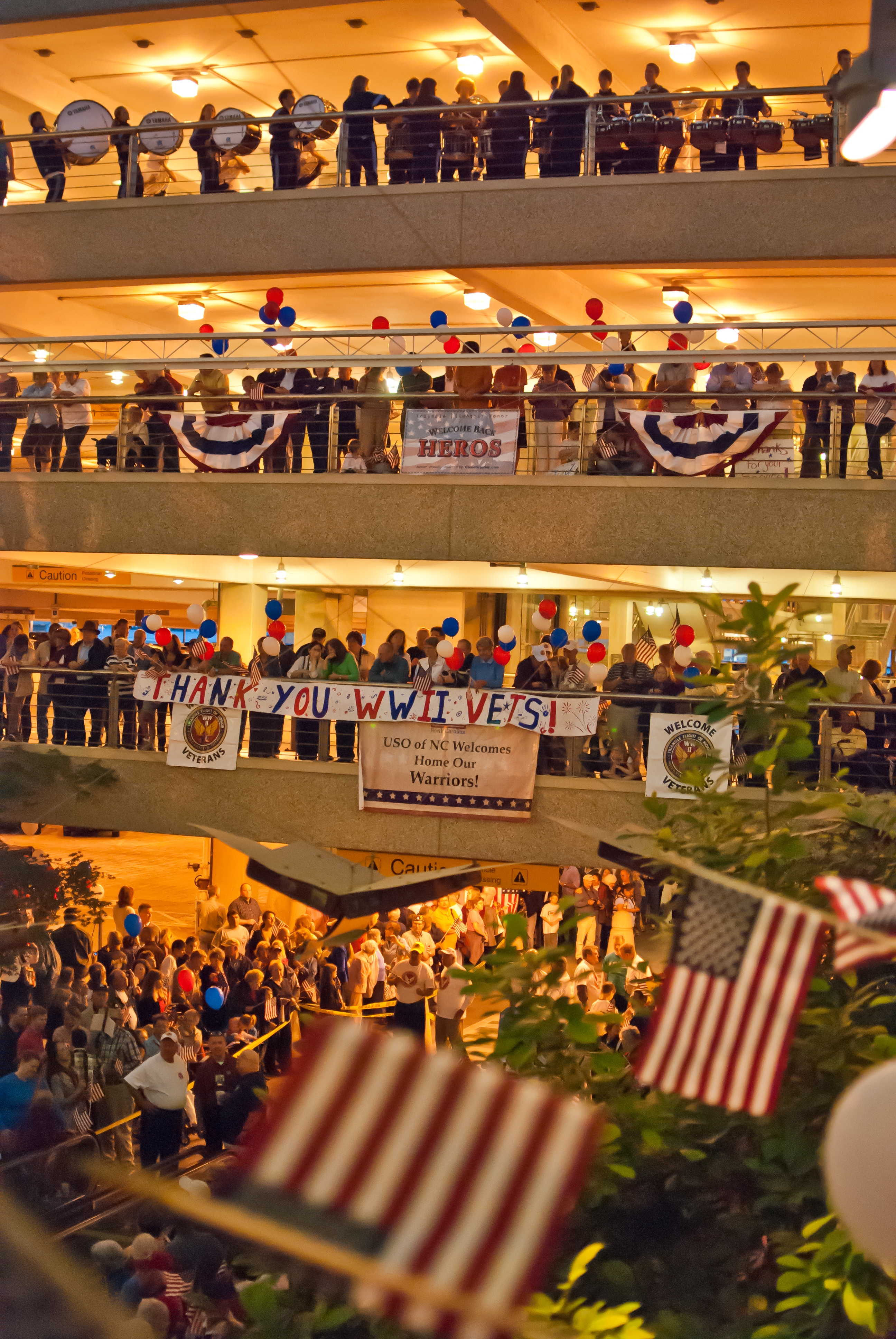
I was at my buddy Lukas’s house, when his dad came home and suggested that we go to the Flight of Honors. I had no idea what it was, but I had nothing to do, so we went.
The Flight of Honors recognizes World War II veterans by flying these able-bodied men and women to D.C. to see the WWII memorial before they die.
We arrived at RDU airport at around 7:00 and the party was already getting started. The veterans weren’t supposed to arrive for another hour, but the bottom floor of the RDU parking deck had already filled up. I spoke to a couple of people on the way in and was handed an American flag by a man in uniform, who insisted I be patriotic.
As a cynical 16 year old, I am by no means patriotic. Heck, I’m not even an American at this point in my life. The main reason I was attending this was I had heard the term ‘airlift’ when the event was being described and from that I was expecting to see helicopters. I was wrong, but not exactly disappointed.
At one point, I heard an explosive noise from above, everyone did; it startled us all. We looked up to see none other than the UNC marching band, in its entirety, surrounding the third level of the parking deck. And then they began to play. It was loud. And repetitive. If there was one thing that made the experience memorable, it was definitely the marching band. If there was one thing that I hated while waiting for the veterans to show up, it was listening to the marching band. They played incessantly, mercilessly, for over an hour.
The honorees were slated to arrive at 8:00, but by the time 8:30 rolled around, they still had not arrived. The marching band continued to play; the primary conductor — a sizable man — was beginning to look rather winded.
At 8:50 or so, the veterans arrived. They came in small groups, however many could come down the elevator and then file through the small door. The total elapsed time from the first to the last was about 25 minutes; I felt empathy for the soldiers and other individuals who saluted the whole time. 120 veterans returned to North Carolina on this flight.
The vets proceeded to parade down the moving sidewalk which the crowd had strategically positioned themselves around. While it’s fairly difficult to be excited about watching a couple of old guys walking slowly, this crowd did an excellent job. Cheering and expressions of gratitude were rampant.
I hadn’t expected to be so moved by this ceremony. As Lukas and I were saying, normally we wouldn’t just go to a ceremony honoring dozens of men whose actions we didn’t really know or hadn’t experienced. We felt like we were jumping on the bandwagon. But we were alright with it. These men were heroes, whose actions had directly affected the course of history. How is that not worth honoring?
Betty Maerker was a greeter at the introductory meeting for the flight at her church the previous Saturday night. “ Seeing the veterans brought back many memories,” said Mrs. Maerker. “My husband was a World War II veteran. He had joined the Navy on his seventeenth birthday, for the duration of the war and a year afterwards. He returned home, finished high school and went to college on the GI bill. I was born in 1929 so I lived through the war. I remember having food stamps so we could only buy so many cans per month. Victory gardens became popular. Sugar and gas were rationed. The national speed limit was 35 mph to save gas and tires. We were all willing to sacrifice; it was a very patriotic time to live.”
In the beginning, I was more excited about the food. But as these men came out and I realized what they had given, I didn’t care that there were no helicopters. These men were heroes. And I was proud to express my gratitude for their actions, regardless of my cultural background.

Leave a Reply